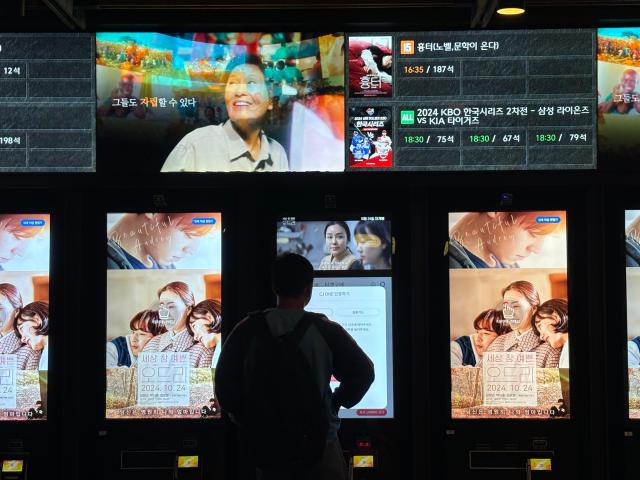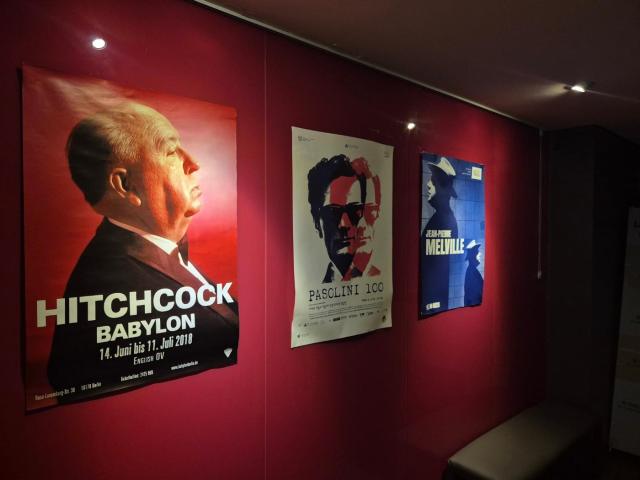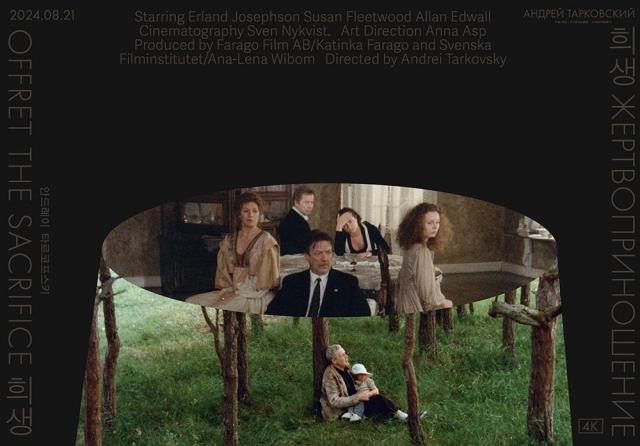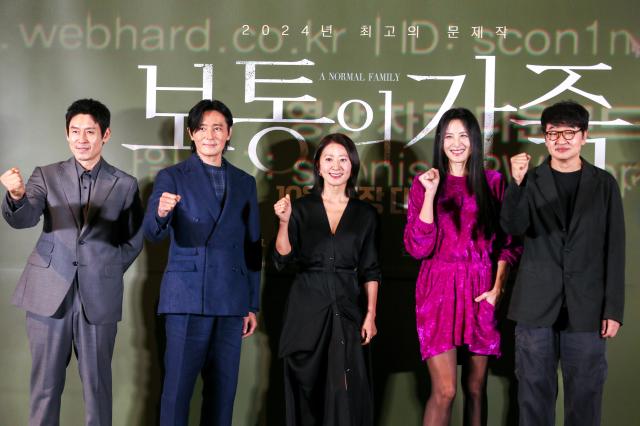
Ha Min-ji, 24, recently watched the 2004 American romantic drama "The Notebook." She was among around 66,000 moviegoers who visited theaters during the first week of the 20-year-old film's rerun, which began on Oct. 9. "I've seen it twice before, but never on the big screen," Ha said. "It's really good to watch one of my favorite films again in a theater, as it brings back all the memories of when I first watched the film."
The heartwarming love story is just one of many films being re-released in theaters this year. Film enthusiasts can now catch these timeless classics and older films not only at cozy vintage theaters but also at major multiplex chains, which are increasingly adding them in their screening lineups.
During the first ten months of this year, CGV, the country's largest movie chain, has screened about 60 reruns of classic films with some restored in high resolution and enhanced sound. The movie chain was also quick to capitalize on the surging popularity of books by Han Kang after she became the country's first-ever winner of the Nobel Prize in Literature, recently deciding to offer special screenings of "Vegetarian" (2009) and "Scars" (2011), both low-budget films adapted from the laureate's works.
"Older movies can attract more moviegoers to theaters, particularly appealing to young couples in their 20s and 30s who are looking for a romantic night out with nostalgic films," said Seo Ji-myeong, a marketing manager at the multiplex chain.

These strategies often prove effective, with some gaining renewed appreciation as sleeper hits. Re-screened in August, the 2019 Chinese romance drama "Better Days" has attracted 202,000 moviegoers, three times the 70,000 cumulative viewers it had during its original release here the following year. "Begin Again," the American music comedy, which was rereleased last month in celebration of its 10th anniversary, drew 200,000 viewers in about three weeks.
Repertory theaters and other art houses dedicated to screening classics and independent films are also bustling with the latest trend.
Seoul Art Cinema in central Seoul has been offering special screenings of classic films in cinema history, including famed Russian filmmaker Andrei Tarkovsky’s final masterpiece, "The Sacrifice," first released in 1986. The remastered version of the acclaimed film has drawn an impressive 15,000 moviegoers since its re-release here in August, despite its reputation for overly enigmatic in its cinematic artistry.
"Immersed in the darkness of the theater, I was able to fully focus on the legendary film without any distractions or interruptions," said a man in his mid-30s surnamed Kim who saw the film earlier this month.

"We rarely lose money with classics," said Park Hye-jin, a staffer at Artnine, a small 150-seat theater in Seoul, which screens three to four cinematic masterpieces each month. "Unlike new releases, reruns are cost-effective as they draw a decent number of audiences without any promotional efforts due to their proven quality and established recognition," she said.
But uncertainties always remain. "Even with well-known timeless classics, some may still sputter at the box office," said Kim Sang-min, CEO of EMU Films, which acquired the redistribution rights for "The Notebook." "Those who have already watched certain films don't want to see them again or prefer to watch them at home, which means that simply screening reruns is not a guaranteed formula for success in theaters."
Copyright ⓒ Aju Press All rights reserved.




View more comments